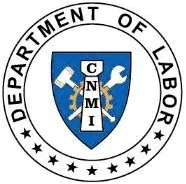
THE CNMI Department of Labor is reminding the local business community of the definition and expectations of a “good faith effort” to hire U.S. citizens and U.S. eligible workers, as stipulated under § 80-20.1-235 Job Referral “(f) Good Faith Effort to Hire.” This clarification aims to ensure that employers are genuinely prioritizing the hiring of citizens, CNMI permanent residents, and U.S. permanent residents for job vacancies in the Commonwealth.
Employers must make a good faith effort to hire local workers, even if the department’s referral service is unsuccessful in finding qualified applicants. This includes interviewing all U.S. citizen applicants who apply through the DOL job vacancy announcement job board system. Interviews with US eligible applicants must be documented in the JVA declaration which is required to be submitted 14 days after the JVA closes if a U.S. citizen is not hired. Employers must provide legitimate reasons for not hiring these applicants.
What constitutes a good faith effort? One is a willingness to train. A good faith effort includes hiring individuals who may not yet have the necessary skills but are willing to be trained for entry-level positions. Another example is ensuring you have a flexible interview schedule. Employers should offer interview times that accommodate the applicant’s schedule rather than demanding immediate availability. This practice ensures fairness and respect for the applicant’s circumstances. A big one is in not hiring a foreign worker for entry-level positions. Posting JVAs for entry-level positions without requesting a foreign labor certification demonstrates a commitment to hiring local workers. It is widely recognized that the process is flawed when businesses seek foreign labor certifications for roles that could be filled by U.S. eligible workers. The biggest example of good faith effort is a business’s participation in DOL programs. Participating in the annual job fairs is one way. Actively engaging in Workforce Investment Agency’s Workforce Innovation and Opportunity Act Title 1 Programs is another way to show a strong commitment to investing in the local workforce. WIA programs in particular offer training and certifications that upskill workers, benefiting both businesses and the community.
Demonstrating a good faith effort includes accurately reporting in the quarterly Census of Employment. This should reflect the ratio of U.S. workers increasing due to participation in training programs. Additionally, documenting the separation or resignation of local workers within the quarter shows transparency and genuine effort.
The benefits of committing to a good faith effort are measurable. Participating in Workforce Skill development programs like WIA’s provide substantial returns on investment by helping businesses take out the risk by providing financial support and overall, improve their workforce’s skills and qualifications through training and certification. Not to mention the effect on our island’s economic growth. While not all positions, especially highly skilled ones, can be filled locally, investing in the local workforce through training and development benefits the entire economy.
For more information on making a good faith effort to hire local workers or to participate in WIA programs, businesses can contact the WIA office at (670) 488-1720/2312/2324, email cnmiwioa@dol.gov.mp, or visit Building No. 1353 on Capital Hill.











